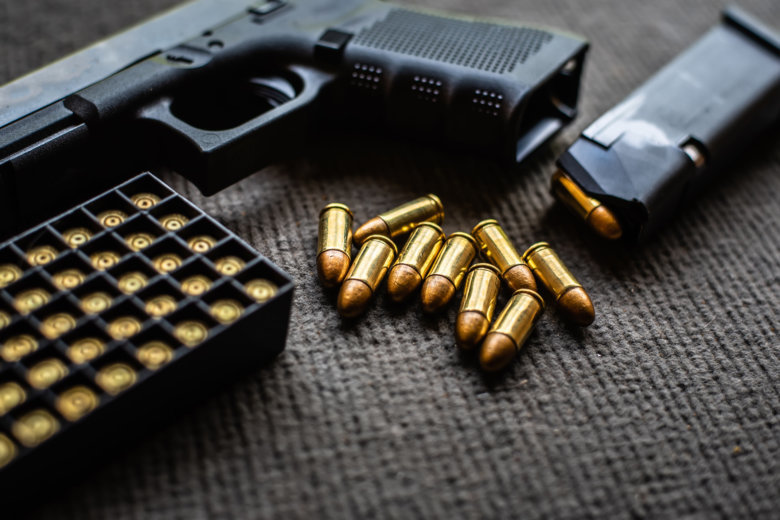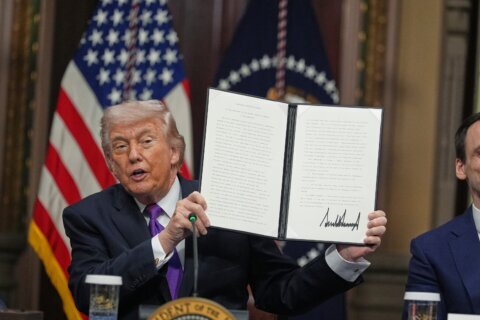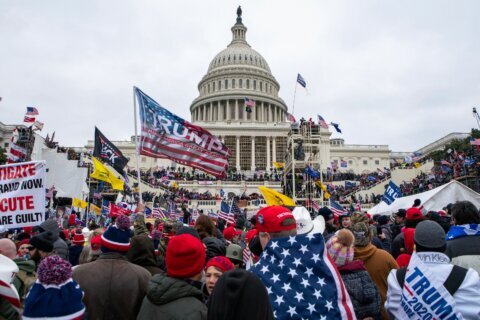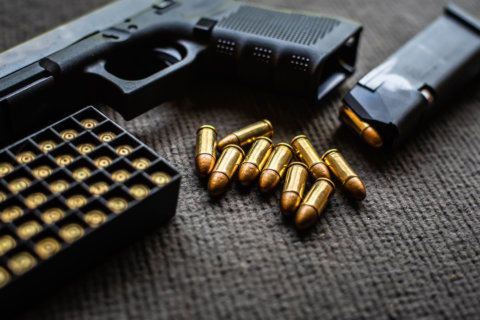
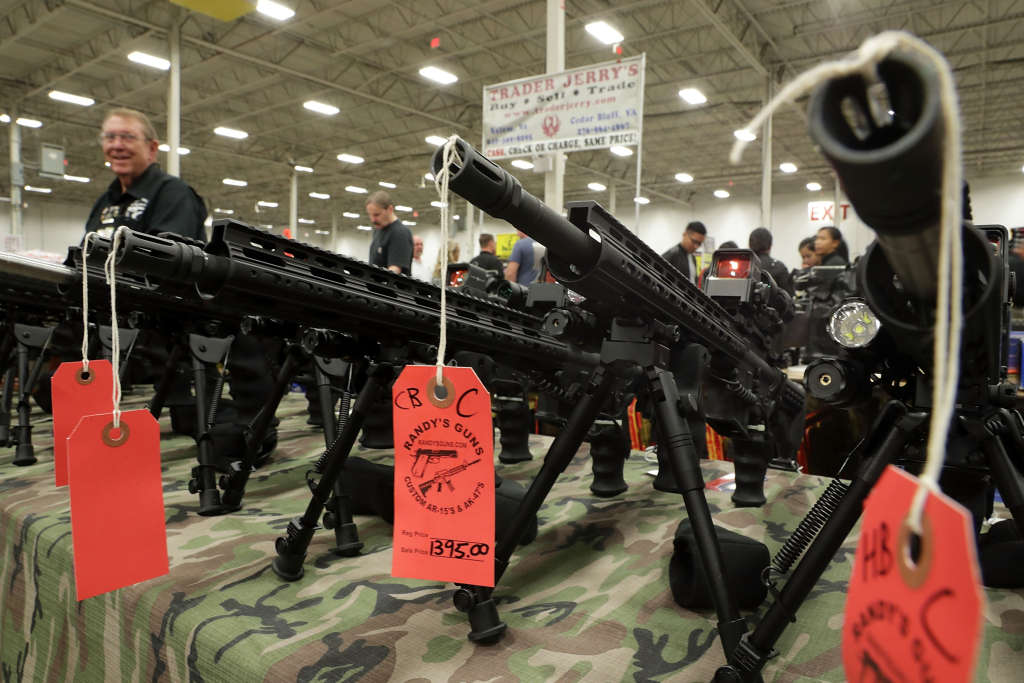
Democrats are set to take over both the Virginia Senate and the House of Delegates.
This historic shift is likely to result in another shift in the state’s gun control policy. It gives the commonwealth’s Democratic governor an opportunity to do what he couldn’t over the summer: pass tighter legislation.
It was just months ago that Gov. Ralph Northam called a special session following the May 31 mass shooting in Virginia Beach. Republicans abruptly adjourned that July session, preempting a vote on Northam’s proposed package of eight gun-control measures. The then-Republican majority dismissed the session as politically motivated.
Now, with the 2019 election having taken legislative control away from the GOP, the stage is set for a massive policy shift (in the state that the National Rifle Association calls home).
Anticipating this, gun-rights proponents have launched their own effort in the form of “Second Amendment sanctuary” resolutions.
Any confusion among Virginians, regardless of whether they own a gun or not, is understandable.
Q: How strict are Virginia gun laws currently?
According to the Giffords Law Center to Prevent Gun Violence — which advocates for tighter gun-safety regulation — Virginia’s laws get a grade of “D.” Contrast that to the “A” grades the NRA has given to Virginia’s Republican legislators — many of whom are gun-rights proponents — the past few years.
Current Virginia gun laws, per the NRA …
- Do not require a permit to purchase rifles, shotguns or handguns.
- Do not require firearm registration.
- Do not require licensing.
- Do not require a permit to carry a rifle or shotgun.
The Giffords center points out that the laws also …
- Do not “regulate the transfer or possession of .50-caliber rifles or large capacity ammunition magazines.”
- Do not require a background check before transferring a firearm between unlicensed people.
- Do not impose a waiting period before the sale of a firearm.
- Do not require owners to report lost or stolen guns.
Among the restrictions that do exist: Concealed carry is allowed, but requires a court-issued permit.
In addition, dealers must contact state police — which conducts a background check — before a sale. State police are also required to be at gun shows to conduct background checks “at the request of the parties to the transaction.”
And there are some restrictions on “assault firearms,” which the law defines as being designed to accommodate a silencer or folding stock, and having a magazine that can hold over 20 rounds. Non-U.S. citizens or residents can’t buy, possess or transport one. And the import, sale and possession of a semi-automatic shotgun commonly called a “streetsweeper” is banned.
Q: How could these laws change?

The failed legislation that Northam proposed over the summer will be proposed again.
“There are no real surprises,” said Brian Moran, Virginia’s secretary of public safety and homeland security. “We’ll roll them out probably prior to session.”
This package would …
- Ban assault weapons, silencers, high-capacity magazines and other “dangerous weapons.” (UPDATE FEB. 17: This measure has failed in a Senate committee.)
- Require background checks on all firearm transactions.
- Reinstate the law — repealed in 2012 — allowing no more than one handgun purchase a month.
- Allow municipalities to enact “ordinances that are stricter than state law.” Among the examples they cite: rules banning guns in libraries or municipal buildings.
- Require lost or stolen guns to be reported to authorities within one day.
- Allow law enforcement to “temporarily separate a person from firearms if the person exhibits dangerous behavior that presents an immediate threat to self or others.”
- Prohibit the subjects of protective orders from possessing guns.
- Toughen punishment for allowing access of a loaded, “unsecured” firearm to someone 18 or younger.
So far, the NRA is maintaining its familiar hard line, contending that the proposal would violate the Second Amendment.
Moran, however, said the laws would “meet all the tests that the Supreme Court has provided” in terms of the Second Amendment.
“We have the case law to support our position,” he said.
Q: Would owners have to give up their weapons?
It depends on whom you ask. According to the NRA, the new laws “would make millions of Virginians a felon overnight,” said DJ Spiker, the association’s state director for Virginia, North Carolina and South Carolina.
That reaction is apparently based on an early draft of one bill from Sen. Dick Saslaw, who told the Virginia Mercury that it is likely to be changed in a subsequent draft.
“I’m not going to lock up a large part of Virginia,” he said.
To that point, a Northam spokeswoman, Alena Yarmosky, also told the Mercury that the governor would include a grandfather clause allowing owners to keep their assault weapons “with the requirement they register their weapons before the end of a designated grace period.”
That’s small consolation to the NRA. Registration is the “first step to confiscation,” Spiker said.
“It’s an indication the governor’s hearing from the citizens of Virginia — that he’s going too far,” he said. ” … We’re encouraged by the flexibility, but there’s still plenty of ways to go.”
Q: How would local “Second Amendment sanctuaries” fit in the context of tighter statewide gun laws?

Such declarations have been sprouting up recently around the commonwealth. Over 130 counties, towns and cities in Virginia have adopted such resolutions to not enforce any “unconstitutional” gun laws, according to the Virginia Citizens Defense League, a gun-rights organization.
Closer to D.C., that includes Fauquier, Prince William and Spotsylvania counties.
The Washington Post attributed the rapid appearance of these resolutions to both the VCDL and the NRA, which “have used social media and old-fashioned networking to offer boilerplate language.”
In a recent statement, the NRA characterized this movement as “virtuous voices against governmental oppression.”
“It is the tyrannical nature of politicians that triggers sanctuary, not the other way around,” the statement said.
But as they’re just resolutions, they don’t have weight, and state laws would apply.
“These resolutions have no legal force. They’re just part of an effort by the gun lobby to stoke fear,” said Virginia Attorney General Mark Herring, who detailed the argument in a recent letter to Del. Jerrauld Jones.
Richard Schragger, the Perre Bowen professor of law at the University of Virginia School of Law, agreed during a recent interview with WTOP. “There’s no ability for citizens in any of these Second Amendment sanctuaries to assert that they don’t have to comply with state law,” he said.
It all sets up the possibility of open defiance. The VCDL, for instance, contended on its website that “law enforcement officers do not have to, and shouldn’t, enforce any unconstitutional laws.”
Not the case, said Dana Schrad, executive director of the Virginia Association of Chiefs of Police. “The courts are the proper branch of government to determine the constitutionality of laws duly enacted by the legislature,” she said in an email.
And Northam himself recently said that communities could face “consequences” if they don’t enforce legislation.
Q: How would new laws address the issue of “ghost guns?”
Such weapons are assembled from purchased pieces or kits. They don’t require background checks to buy and are untraceable. As such, they’re being used more by criminals, according to The Associated Press.
Yet they’re currently not considered weapons because “there’s a little bit of assembly and some finishing that needs to be done,” explained Adam Skaggs of the Giffords center. ” … There’s a simple solution, which is regulating do-it-yourself guns just like any other guns.”
And that’s just what new assault weapon legislation would address, said Virginia’s secretary of public safety and homeland security.
“The lethal firearms that we have proposed to ban in our assault weapon legislation … would address ghost guns,” Moran said.

